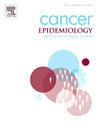The role of sleep traits in prostate, endometrial, and epithelial ovarian cancers: An observational and Mendelian randomisation study
IF 2.3
3区 医学
Q3 ONCOLOGY
引用次数: 0
Abstract
Background
Sleep traits may influence cancer risk; however, their associations with prostate (PCa), endometrial (ECa), and epithelial ovarian (EOCa) cancer remain unclear.
Methods
We conducted an observational analysis using the UK Biobank cohort and a two-sample Mendelian randomisation (MR) analysis to investigate the association between six sleep traits-duration, chronotype, insomnia, daytime napping, daytime sleepiness, and snoring-with PCa, ECa, and EOCa risk. Cox proportional hazards models were used for the observational analysis, while the inverse variance-weighted (IVW) method was applied in MR, with multiple sensitivity analyses. A Bonferroni correction was applied to account for multiple testing.
Results
Among 8608 PCa, 1079 ECa, and 680 EOCa incident diagnoses (median follow-up: 6.9 years), snoring was associated with reduced EOCa risk (HR=0.78, 95 %CI: 0.62–0.98), while daytime sleepiness was associated with increased EOCa risk (HR=1.23, 95 %CI: 1.03–1.47). However, these associations were not confirmed in MR. MR suggested higher odds of PCa (ORIVW=1.05, 95 %CI: 1.01–1.11) and aggressive PCa (ORIVW=1.10, 95 %CI: 1.02–1.19) for evening compared to morning chronotype. None of the findings survived multiple testing correction.
Conclusion
Sleep traits were not associated with PCa, ECa, or EOCa risk; however, an evening chronotype may increase PCa risk. Further research is needed to verify this association and investigate potential underlying mechanisms.
睡眠特征在前列腺癌、子宫内膜癌和上皮性卵巢癌中的作用:一项观察性孟德尔随机研究
睡眠特征可能影响癌症风险;然而,它们与前列腺癌(PCa)、子宫内膜癌(ECa)和卵巢上皮癌(EOCa)的关系尚不清楚。方法采用英国生物银行队列和双样本孟德尔随机化(MR)分析进行观察性分析,研究持续时间、睡眠类型、失眠、白天午睡、白天嗜睡和打鼾等六种睡眠特征与PCa、ECa和EOCa风险之间的关系。观察分析采用Cox比例风险模型,MR分析采用逆方差加权(IVW)法,进行多敏感性分析。采用Bonferroni校正来解释多重检验。结果在8608例PCa、1079例ECa和680例EOCa事件诊断(中位随访时间:6.9年)中,打鼾与EOCa风险降低相关(HR=0.78, 95 %CI: 0.62-0.98),而白天嗜睡与EOCa风险增加相关(HR=1.23, 95 %CI: 1.03-1.47)。然而,这些关联并没有在MR中得到证实。MR表明,与早晨的时间型相比,晚上的PCa (ORIVW=1.05, 95 %CI: 1.01-1.11)和侵袭性PCa (ORIVW=1.10, 95 %CI: 1.02-1.19)的几率更高。这些发现都没有经过多次测试修正。结论:睡眠特征与PCa、ECa或EOCa风险无关;然而,晚上的睡眠类型可能会增加前列腺癌的风险。需要进一步的研究来验证这种关联并调查潜在的潜在机制。
本文章由计算机程序翻译,如有差异,请以英文原文为准。
求助全文
约1分钟内获得全文
求助全文
来源期刊

Cancer Epidemiology
医学-肿瘤学
CiteScore
4.50
自引率
3.80%
发文量
200
审稿时长
39 days
期刊介绍:
Cancer Epidemiology is dedicated to increasing understanding about cancer causes, prevention and control. The scope of the journal embraces all aspects of cancer epidemiology including:
• Descriptive epidemiology
• Studies of risk factors for disease initiation, development and prognosis
• Screening and early detection
• Prevention and control
• Methodological issues
The journal publishes original research articles (full length and short reports), systematic reviews and meta-analyses, editorials, commentaries and letters to the editor commenting on previously published research.
 求助内容:
求助内容: 应助结果提醒方式:
应助结果提醒方式:


